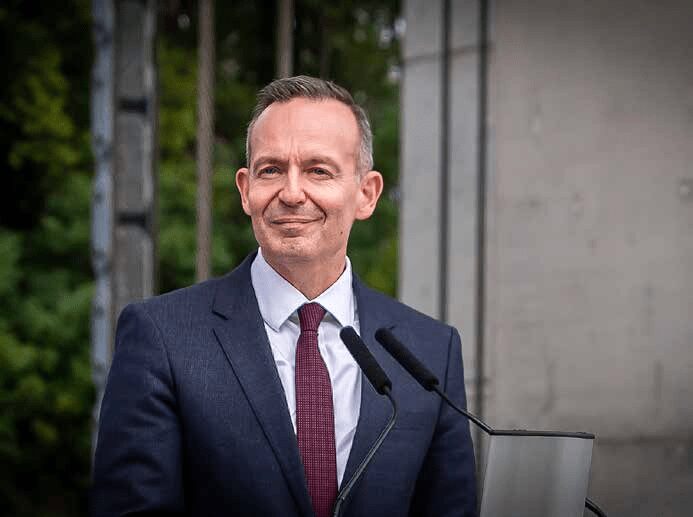Navigating the Fast Lane: Dr. Volker Wissing on Transforming Germany’s Digital and Transport Landscape
Introduction:
In the fast-paced world of digital transformation and evolving transportation needs, Dr. Volker Wissing stands at the forefront as the Federal Minister for Digital and Transport, Deputy Federal Chairman of the FDP, and the State Chairman of the FDP of Germany. Known for his visionary approach, Dr. Volker Wissing addresses critical issues shaping the future of Germany, Europe, and beyond. In this exclusive interview conducted by Dieter Härthe, Co-publisher of Visions for Europe, with Dr. Volker, we delve into Dr. Volker’s insights on mobility, digitization, and the bold initiatives he envisions to establish Germany as a leader on the global stage.
Given the challenges facing European rail networks, could you outline an ambitious plan for transforming cross-border mobility, and how do you plan to navigate the political and infrastructural hurdles to bring this vision to fruition?
Efficient rail transportation hinges on European integration. The success of the Germany Ticket illustrates that attractive offerings can increase train patronage. However, when it comes to international travel, it’s not merely about offering a good ticket. Crucially, it demands seamless cross-border journeys for both passenger and freight services. The technical and operational standardization of rail systems through the Technical Specifications for Interoperability (TSI) is undeniably the cornerstone. Yet, the real competitive edge will come from the cross-border application of digital innovations. Consequently, we advocate for the pan-European adoption of Digital Automatic Coupling, the standardized use of Building Information Modeling (BIM) as a universal tool for planners, approvers, operators, and inspectors, as well as the collective utilization of software for managing disruptions. These innovations are transformative. They not only create new prospects for young professionals but also reinforce the strength of the European rail network as a whole.
Germany is lagging behind some European countries in digitalization. What specific steps will your ministry take to close this gap?
The federal government is committed to addressing decades of digitalization backlog. Our roadmap is the federal government’s digital strategy, which we are implementing step by step. In just two years, Germany has made significant digital advancements in various sectors:
- The expansion of gigabit connectivity is accelerating. Currently, approximately one in every three households in Germany is equipped with fiber optics. Moreover, 5G coverage extends to 90 percent of federal territory, positioning us as a leader in Europe.
- The introduction of digital e-prescriptions at the start of the year has enhanced patient convenience, reducing both paper use and unnecessary visits to the doctor.
- Since September, the digital vehicle registration system (i-Kfz) has allowed for the digital registration, transfer, and deregistration of vehicles from home. This service is now accessible in over 60 percent of vehicle registration offices. It is imperative that states and municipalities complete their responsibilities to offer this service nationwide.
The primary challenge in digitalization lies in the federal system’s complexity, where it’s essential to engage multiple stakeholders effectively. Coordination and consensus on common standards are crucial among the 16 states and over 10,000 municipalities. As the Minister of Digital Affairs, I advocate for greater pragmatism and expedited processes. My personal involvement has been key in overcoming obstacles, as demonstrated by the successful introduction of the digital Germany ticket. I persuaded state colleagues of the benefits of a digital-only ticket, enabling future insights into the country’s mobility patterns.
Can you highlight a unique innovative strategy that sets Germany apart in the digital arena?
Germany excels particularly in the realm of future technologies. We are at the forefront of Artificial Intelligence (AI) research, ranking 5th globally in the number of scientific publications on AI. In 2023, Germany saw the establishment of over 500 AI startups, and more than 600,000 German companies have already integrated AI into their operations. As a result, AI has become a focal point of my digital policy agenda. This is exemplified by the creation of AI quality and innovation centers in Kaiserslautern and Berlin, which facilitate the practical application of AI and provide support to startups for testing new technologies.
Additionally, we prioritize advocating for effective regulation for AI companies. Competing directly with the United States and China, it is crucial for Germany to strive for as level a playing field as possible. The introduction of the Code of Conduct represents a significant achievement, with all G7 countries aligning on uniform guidelines for the development of advanced AI systems. This agreement ensures equitable opportunities for all companies involved.
The Traffic Light coalition unites diverse ideologies. How do you plan to navigate potential obstacles and leverage these ideological differences to propel groundbreaking initiatives in digital and transport sectors?
We are navigating politics in a uniquely challenging constellation, particularly during these difficult times. There’s a significant backlog left by the grand coalition that we need to address. Hence, our coalition agreement is aptly named ‘Dare to progress more’. Our aim is to focus on initiatives that advance our country and return Germany to a path of growth. The FDP is eager to contribute to this mission and help shape the future of our nation. Regarding groundbreaking measures within my department, I’d highlight the largest infrastructure renovation package in the history of German railways. This initiative is setting the stage for a paradigm shift in railway infrastructure, aiming to improve quality, increase capacity, enhance transparency, and prioritize customer service. Additionally, the introduction of the Germany Ticket represents a monumental advancement in public transport.
On the digital front, the AI Act is particularly noteworthy. The future of our competitiveness hinges on the adoption of artificial intelligence. The compromise reached on the AI Act establishes a solid foundation for the development of trustworthy AI. As we implement the AI Act, we intend to fully utilize our flexibility to prevent redundant regulations and position Europe as a leading AI hub, capable of standing strong in global competition.
Liberal economic policy often faces scrutiny. What transformative initiatives does the FDP plan to introduce to modernize economic liberalism and appeal to a new generation of voters?
The Free Democrats staunchly support the social market economy for its role in driving progress and prosperity. We advocate for a reinvigorated alignment with its foundational principles. The FDP champions policies that place trust in individuals, advocating for greater reliance on the market economy, fostering courage, and expanding freedom. We believe the state’s role is to establish optimal conditions for economic success, growth, and innovation. Through the Growth Opportunities Act and the Future Financing Act for startups, we’ve launched significant measures aimed at fostering new economic growth. Additionally, the Bureaucracy Relief Act represents a decisive step towards eliminating unnecessary bureaucratic barriers. Our efforts continue in enhancing the attractiveness of our business environment through efficient infrastructure and top-tier educational opportunities. In essence, the FDP stands as a committed ally for those who, through dedication and a willingness to embrace risk, seek to contribute to our country’s advancement.
How can liberal parties in Europe collaborate on economic issues in a rapidly evolving global context, and what specific initiatives could serve as a model for a pan-European economic strategy?
The European Union represents a remarkable story of success, having secured peace, freedom, and prosperity for its members. At the European level, we collaborate closely with the liberal ALDE Party and the Renew Europe Group in the European Parliament to drive essential reforms for the EU’s future. A critical area of focus is the significant reduction of bureaucracy, a challenge that has persisted under the leadership of EU Commission President Ursula von der Leyen (CDU). In the upcoming European elections in June, the FDP is advocating for enhanced free trade, reduced subsidies, and a stronger internal market. Similarly, within the EU framework, there’s a pressing need for a more market-oriented economy and improved conditions for private investments and startups. Through ambitious reforms, Europe can secure a dominant position in global technological innovation by the end of this decade. Our strategy includes leveraging the potential of AI and novel breeding technologies, emphasizing the importance of remaining open to technological advancements. We advocate for an efficient, market-based European emissions trading system and the adoption of e-fuels for achieving climate-neutral mobility, rather than relying on prescriptive measures like CO2 fleet limits.
What innovative strategies will your ministry implement to enhance Germany’s role in digital innovation, drawing lessons from leading countries?
Our ministry has laid out comprehensive plans with our national digital strategy, data strategy, and strategy for international digital policy, setting high benchmarks that we are progressively achieving. On the international stage, we are dedicated to promoting access to a free and open internet, leveraging our participation in global forums such as the G7, G20, OECD, and United Nations.
Furthermore, I have established an innovation partnership with the Baltic States, aiming to glean insights from these digitally advanced nations. Together, we are advocating for a digital policy in the EU that is focused on opportunities and conducive to innovation. We have formulated specific recommendations for the digital agenda of the upcoming European Commission. It is crucial that we avoid stifling innovation within Europe through overregulation.
How does the FDP plan to balance the pursuit of technological advancement with liberal values and ethical considerations, particularly in the realms of data protection, AI, and automation?
I am deeply committed to ensuring the utmost protection of civil rights in the digital realm. The FDP is dedicated to safeguarding private communication and ensuring that citizens are free from the fear of state surveillance. Consequently, I, along with my liberal colleagues in the cabinet, strongly oppose any European initiatives aimed at introducing chat control or widespread biometric facial recognition.
Artificial intelligence represents a significant shift in our efficiency, work, and thought processes. It is imperative for me that the development and application of AI technology adhere to the rule of law and democratic values. Through the G7’s Code of Conduct, we emphasize the responsibility of AI developers to ensure that this technology serves the greater good and is not used for scrutinizing or manipulating individuals.
Silicon Valley remains a global technology hub. How does your ministry plan to engage with and draw insights from the Silicon Valley ecosystem to elevate Germany’s status in international digital innovation?
My recent visit to the USA for the Consumer Electronics Show underscored the global acclaim for German products. Year after year, German companies stand out as some of the most coveted exhibitors at CES, captivating hundreds of thousands with their innovations. With key CES focuses on Artificial Intelligence, biotech, and autonomous driving, Germany is clearly leading the charge. This success gives us confidence in our capabilities. Nonetheless, CES also highlighted the USA’s remarkable innovation capacity and its culture of progress. Strengthening and expanding transatlantic relations remains a priority for me, recognizing the value of collaborating with and learning from such a dynamic and innovative environment.
What is your strategy for establishing economic partnerships with non-European nations that align with liberal principles, and could you cite a specific instance where such a partnership would be mutually advantageous?
The USA stands as one of the most crucial and reliable allies for both Germany and Europe at large. Take autonomous driving as an example: I aim to collaborate with my American counterparts to develop a global regulatory framework, as uniform standards are vital for ensuring smooth traffic flow and facilitating international trade. This initiative aligns with the interests of the German automotive sector, which seeks to market its vehicles on a global scale. Similarly, in the realm of Artificial Intelligence, I am actively seeking to build international coalitions that serve the German economy’s interests. It is essential for AI innovations from Germany to be compatible on an international scale, achievable only through the establishment of consistent regulations across Europe, the USA, Canada, and Japan. Hence, the G7’s unified Code of Conduct for AI developers holds significant importance.
In the context of technological advancement, marginalized communities are often left behind. How does your ministry plan to make the tech revolution inclusive, and what strategies are in place to close the digital divide and empower all citizens?
I view the situation from a different perspective. Digitalization presents a significant opportunity for increased participation and inclusion, particularly for those in disadvantaged positions. Consider the examples of elderly individuals and those with limited mobility. Utilizing up-to-date traffic information and integrated transport services, we can craft personalized solutions for users—whether it’s finding the most convenient route for wheelchair users, identifying the quickest transportation options for commuters during peak times, or sourcing the most affordable travel options for family activities on weekends. This is why we’re heavily investing in the digital transformation of our transportation systems, aiming to ensure accessible mobility for everyone through well-connected services. In our mFUND funding program, we specifically focused on mobility participation last year, supporting projects that address inclusion and participation within the transport sector. The initiatives we’ve funded range from developing accessibility ratings and digitally assisted equitable charging infrastructure planning to creating tools for analyzing air quality and occupancy rates in public transport, all aimed at fostering trust and sustainability.
How does the “budget freeze” impact construction companies and the development of infrastructure?
Unfortunately, over the past few decades, a significant backlog of renovations has accumulated in our transport infrastructure, necessitating urgent action to address these issues at an unprecedented rate. Despite the challenging budgetary circumstances, we have managed to secure several additional billion euros for the development of infrastructure in the upcoming years, with a focus on railways as well as the renovation of roads and bridges. This funding demonstrates a strong commitment to the construction industry, encouraging them to increase their capacities to meet the demand. To ensure the reliability of our planning, we are engaging in direct communication with the industry. At the rail summit held last autumn, the construction industry as a whole endorsed our strategy for renovating the German rail networks, highlighting a collective effort to improve our infrastructure.





















